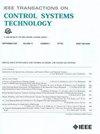OA-MPC: Occlusion-Aware MPC for Guaranteed Safe Robot Navigation With Unseen Dynamic Obstacles
IF 3.9
2区 计算机科学
Q1 AUTOMATION & CONTROL SYSTEMS
引用次数: 0
Abstract
For safe navigation in dynamic uncertain environments, robotic systems rely on the perception and prediction of other agents. Particularly, in occluded areas, where cameras and light detection and ranging (LiDAR) give no data, the robot must be able to reason about the potential movements of invisible dynamic agents. This work presents a provably safe motion planning scheme for real-time navigation in an a priori unmapped environment, where occluded dynamic agents are present. Safety guarantees are provided based on the reachability analysis. Forward reachable sets associated with potential occluded agents, such as pedestrians, are computed and incorporated into planning. An iterative optimization-based planner is presented that alternates between two optimizations: nonlinear model predictive control (NMPC) and collision avoidance. The recursive feasibility of the MPC is guaranteed by introducing a terminal stopping constraint. The effectiveness of the proposed algorithm is demonstrated through simulation studies and hardware experiments with a TurtleBot robot equipped with a LiDAR system. The video of experimental results is also available at:具有不可见动态障碍物的机器人安全导航的闭塞感知MPC
为了在动态不确定环境中安全导航,机器人系统依赖于其他智能体的感知和预测。特别是,在遮挡区域,摄像机和光探测和测距(LiDAR)无法提供数据,机器人必须能够推断不可见动态代理的潜在运动。这项工作提出了一个可证明的安全运动规划方案,用于在先验的未映射环境中实时导航,其中存在闭塞的动态代理。基于可达性分析提供安全保证。与潜在闭塞代理(如行人)相关的前向可达集被计算并纳入规划。提出了一种迭代优化规划方法,在非线性模型预测控制和碰撞避免两种优化方法之间交替进行。通过引入终端停止约束,保证了MPC的递归可行性。通过仿真研究和配备激光雷达系统的TurtleBot机器人的硬件实验,证明了该算法的有效性。实验结果的视频也可以在https://youtu.be/OUnkB5Feyuk上找到。
本文章由计算机程序翻译,如有差异,请以英文原文为准。
求助全文
约1分钟内获得全文
求助全文
来源期刊

IEEE Transactions on Control Systems Technology
工程技术-工程:电子与电气
CiteScore
10.70
自引率
2.10%
发文量
218
审稿时长
6.7 months
期刊介绍:
The IEEE Transactions on Control Systems Technology publishes high quality technical papers on technological advances in control engineering. The word technology is from the Greek technologia. The modern meaning is a scientific method to achieve a practical purpose. Control Systems Technology includes all aspects of control engineering needed to implement practical control systems, from analysis and design, through simulation and hardware. A primary purpose of the IEEE Transactions on Control Systems Technology is to have an archival publication which will bridge the gap between theory and practice. Papers are published in the IEEE Transactions on Control System Technology which disclose significant new knowledge, exploratory developments, or practical applications in all aspects of technology needed to implement control systems, from analysis and design through simulation, and hardware.
 求助内容:
求助内容: 应助结果提醒方式:
应助结果提醒方式:


